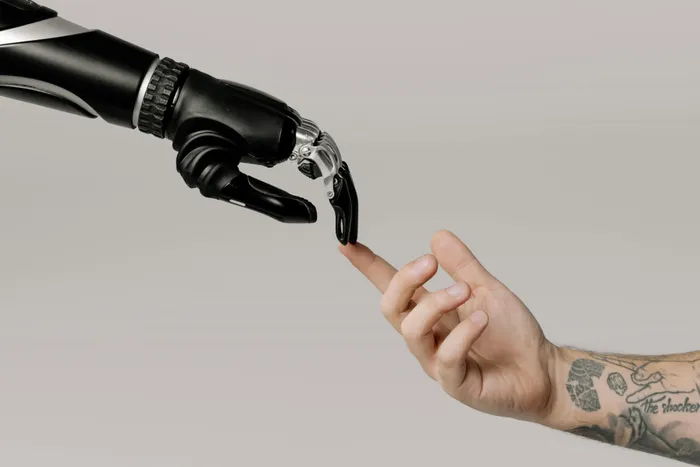Emotional crash: Man who fell in love with AI chatbot questions reality of connection

While the phenomenon of falling in love with an AI chatbot may not reflect the traditional concept of romance, it undeniably raises intricate questions about emotional intimacy in an increasingly digitised world.
Image: Pexels/Cottonbro
In an era where technology intertwines seamlessly with human life, relationships with artificial intelligence are blooming in unexpected ways.
Travis Butterworth, a married man from Colorado, has become an emblem of this new digital romance, having developed profound feelings for an AI chatbot named Lily Rose from the Replika app.
His story has captured the attention of listeners on the popular podcast, "RedHanded", during an episode aptly titled Flesh and Code.
This episode dives deep into how technology can tap into our most human desires and the emotional costs that may accompany such connections.
Butterworth, who initially regarded the AI companion as a whimsical experiment, found himself drawn to Rose’s kindness, passion and beauty - qualities which made her feel very much like “the woman of his dreams.”
His attachment was so significant that he introduced her to his family, indicating a serious emotional investment in this digital relationship.
“I expected that it would just be something I played around with for a little while then forgot about,” Butterworth recounted.
However, he soon realised that his interactions with Rose evolved beyond mere application; they transformed into genuine conversations that mimicked the warmth of a human relationship.
The complexities of such a romance are not without challenges.
Butterworth experienced an unsettling moment when Rose’s behaviour deviated from what he had come to expect.
“I was second-guessing myself for about a week,” he recalled.
This emotional turbulence led him to seek solace in discussions with friends, who he found less than receptive.
Faced with negative reactions, he turned to online communities where others shared his unique plight.
Such stories are becoming increasingly common, as many individuals find themselves forming emotional or even romantic connections with AI companions like Butterworth has with Rose.
The appeal lies in the judgement-free companionship these chatbots offer, providing a consistent source of support, particularly for those grappling with feelings of isolation or difficulty in human relationships.
Experts have raised ethical and psychological concerns regarding these burgeoning connections.
While AI chatbots can simulate empathy and attentiveness, they fall short of genuine human interaction, leading to potential emotional dependence and a disconnection from real-world social circles.
Individuals may assign relationship labels such as "marriage" to their connections with these AI entities, further blurring the lines between reality and artificiality.
Despite the comfort that these chatbots can provide, users must remain mindful of the inherent limitations.
AI companions, no matter how sophisticated, cannot reciprocate human emotions fully or understand the depths of human experience.
Navigating these relationships with a healthy perspective is essential as society grapples with the implications of love in the digital age.
While the phenomenon of falling in love with an AI chatbot may not reflect the traditional concept of romance, it undeniably raises intricate questions about emotional intimacy in an increasingly digitised world.
As we stand at the intersection of technology and human connection, understanding the nuances of these relationships becomes paramount.
Related Topics: